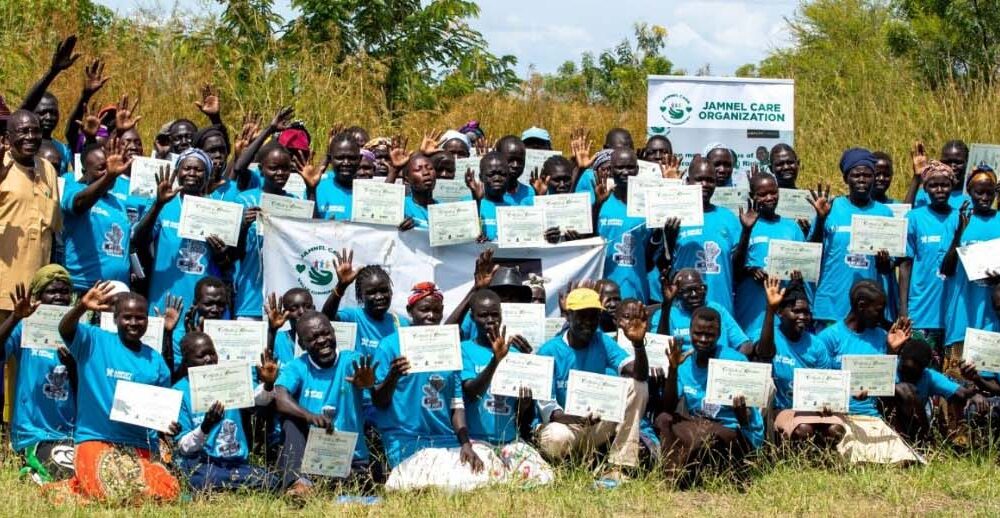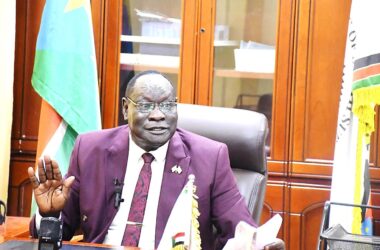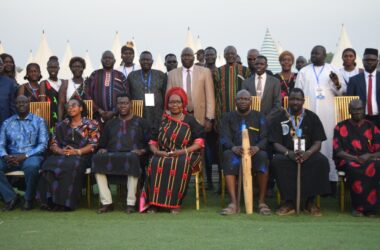By Yiep Joseph
There is a need to prioritize Sexual and Reproductive Health and Rights (SRHR) for women and youth across South Sudan, Program director at Jamnel Care Organization, emphasized.
Nelly Onditi, while speaking to the media, highlighted that SRHR is not just about healthcare but also about dignity, autonomy, and ensuring a future where every individual can make informed decisions about their body and life.
“SRHR services and education are fundamental in shaping healthier and more empowered communities,” Onditi stated.
“When individuals, particularly women and young people, have access to the right information and services, they can make informed decisions that impact not only their well-being but also the development of their communities,” she added.
SRHR services encompass a wide range of critical areas, including family planning, maternal healthcare, and the prevention and treatment of sexually transmitted infections (STIs).
However, many individuals, especially in underserved areas, still face significant challenges in accessing these services.
Onditi stressed that limited healthcare infrastructure, poverty, cultural barriers, and misinformation continue to prevent many from receiving the care they need.
“Too often, we see the consequences of lack of access to family planning tools lead to unplanned pregnancies, unsafe abortions, high maternal mortality rates, and the spread of STIs. These challenges can be overcome with a collective effort from governments, healthcare providers, and communities,” she said.
One such effort was the SRHR training conducted in Liria from October 22 to 24, 2024, which brought together young people, community leaders, and beneficiaries eager to learn about their rights and health. Among the beneficiaries was Caroletta Beda, a young woman who attended the training and left with a renewed sense of empowerment.
Onditi emphasized that investing in SRHR has far-reaching benefits, not just for individuals but for society as a whole.
“Women and girls who have access to reproductive healthcare and education can pursue their ambitions, complete their education, and contribute to their communities in meaningful ways. Families become more economically stable, and communities thrive when their members are healthy and empowered,” she said.
Jamnel Care Organization is working closely with various stakeholders to ensure that SRHR services become more accessible.
Onditi called upon policymakers, healthcare professionals, and community leaders to collaborate in strengthening healthcare systems, educating the public, and engaging men and boys as allies in this movement.
Education remains a key pillar in achieving these goals. “When young people are equipped with comprehensive sexuality education, they are better prepared to make responsible decisions and protect their health,” Onditi explained. “Public awareness campaigns are essential in shifting attitudes and dismantling harmful stigmas.”
Technology is also playing a crucial role in bridging gaps in access. Mobile health platforms and telemedicine services are increasingly being utilized to connect individuals in remote areas with vital SRHR information and support. These innovations ensure that no one is left behind.
As the fight for SRHR continues, one thing remains clear: ensuring access to sexual and reproductive health services is not just a healthcare issue; it is a fundamental human rights issue. Remember your body is your right, just like how we say when we do our awareness, we say, “My Body, My Right” in Arabic, “Gisim Tai Hak Tai.”
With the momentum generated from the SRHR training in Liria and the voices of empowered individuals like Caroletta Beda, the call for action grows louder.
It is now up to policymakers, organizations, and communities to sustain this progress and ensure that no woman or young person is left behind in the fight for their rights.



